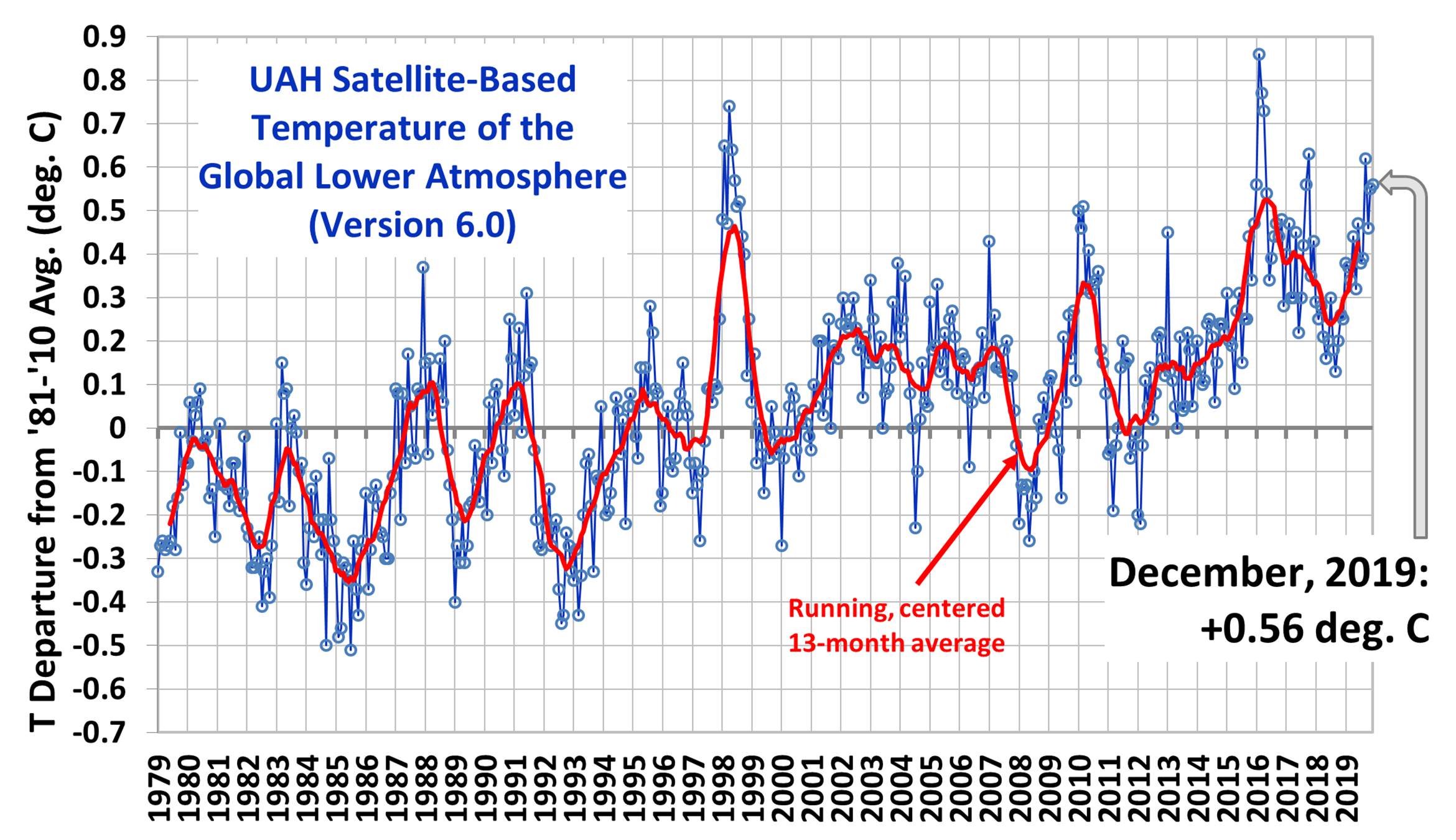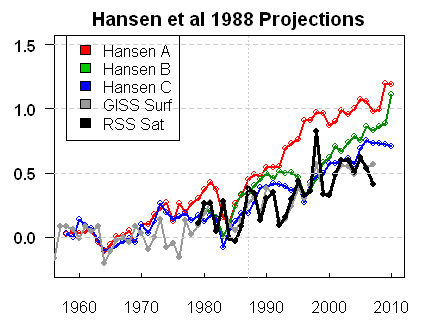Bell curves suck balls........
I love 'em. Theres not many populations they don't account for.
Bell curves suck balls........
And my point, that seems to have flown right by you, is that you (most likely) lack the expertise to make that call and (almost certainly) misunderstand the nature of the scientific consensus on the issue of AGW.
Sure. I haven't road--tested the systems, I've just quoted people who have. The same as warmists here haven't done any of their own climate research, they've just quoted others who have. The problem is they've jumbled a lot of observational science in with long-range predictions as if they're the same thing.
I've never seen a climate model, never tinkered with one, never looked into its guts. But I don't need to have done those things to know that they are not capable of forecasting climate change (even if some of them do a passable job at predicting average weather). They are configured with a range of human-induced variables on the assumption that man is causing the warming, then the results are held up as "proving" that man has caused the warming. The results are merely replicating the assumptions. It's circular reasoning.
The IPCC has been warning for 20+ years of increasing natural disasters due to warming/climate change - cyclones, drought, flood, fires. None of these predictions have been borne out yet.
I would say there is a "consensus" that man is contributing to global warming. Whether it's a 97% consensus or not, I can't say. How much is man's contribution, nobody can say.
You can't void all opinions not emanating from scientists at the stroke of a pen any more than you can void all opinions on football that don't come from top-level footballers or coaches.
Sure but having an opinion on sport is very different from having an opinion on science. People are welcome to have both but they are not equal endeavours. It's a bit like having an opinion on a Monet and having an opinion the chemical composition of cobalt blue. You can express on opinion on both, but you can only be definitively wrong about one if them. So it is with science. It gets very hard to distinguish where the lines are drawn with climate science because it is such a complex area. But you will continue to make statements like:
"They are configured with a range of human-induced variables on the assumption that man is causing the warming, then the results are held up as "proving" that man has caused the warming. The results are merely replicating the assumptions. It's circular reasoning."
even though you know you can't back that up. This is basically the "grand conspiracy" I was referencing. No the models are not circular reasoning. They depend on the use of certain variables to generate modelling outcomes and the ones that consistently produce results that track with observed effects have been those that account for human activity forcing CO2 into the atmosphere. So you can stick to the idea that this forcing is coming from some mystery source or you can accept that the consistent results that align with the models that account for human activity are so consistent because they are correct. What you aren't free to do, if you want to be taken seriously, is claim the reason the results align is because they are rigged. That requires a grand conspiracy, beyond anything we've ever seen.
Implicit in the above was the abandonment of "global warming" in favour of "climate change" c. 2012 after global temperatures had flatlined for a decade. They were on safer ground with the former.
Ah *smile*. I'm "free" to hold any opinion I want to. It doesn't mean anything. Climate models cannot predict climate change. Fact.
The complexity of Atmospheric and Climate Models: Assumptions and Feedbacks
Ah *smile*. I'm "free" to hold any opinion I want to. It doesn't mean anything.
Climate models cannot predict climate change. Fact.
The complexity of Atmospheric and Climate Models: Assumptions and Feedbacks
This is patently false and you know it. There was no flatline.


You are once again very very wrong. Look at the decade up to 2012 and tell me there wasn't a flatline aka "global warming hiatus".


Has Global Warming Paused?
Climate scientists know the answer is no, but have trouble communicating thatwww.scientificamerican.com

You are once again very very wrong. Look at the decade up to 2012 and tell me there wasn't a flatline aka "global warming hiatus".


Has Global Warming Paused?
Climate scientists know the answer is no, but have trouble communicating thatwww.scientificamerican.com
As I said, "if you want to be taken seriously" don't quote from someone associated with The Heartland Institute. Jesus mate.


If you look at that graph and think 'flatline', then maybe that's all that needs to be said about any comment you make on this issue.
1. one of the major drivers of climate is cloud formation
Are climate change models becoming more accurate and less reliable?
blogs.scientificamerican.com
2. cloud formation microphysics is not well understood and is omitted from climate models for that reason

Guest post: Why clouds hold the key to better climate models - Carbon Brief
Clouds in the present-day climate system cover approximately two-thirds of the globe.www.carbonbrief.org

As was said a way back, no minds are being changed here. So I'll continue to observe, and you lot can continue to panic. Deal?
As was said a way back, no minds are being changed here. So I'll continue to observe, and you lot can continue to panic. Deal?
You fond of Scientific American? Here you go:

Climate Models Got It Right on Global Warming
Even models in the 1970s accurately predicted the relationship between greenhouse gas emissions and temperature risewww.scientificamerican.com
Climate Models Got It Right on Global Warming
Even models in the 1970s accurately predicted the relationship between greenhouse gas emissions and temperature rise

Other people read these threads Lee.

